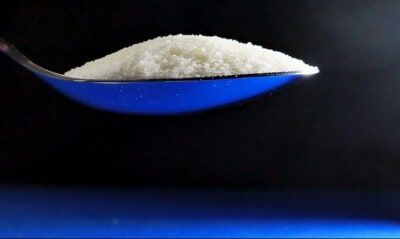
How important is salt for health?
Salt is important for the human body, as some bodily functions are not possible without salt. On the other hand, too much of it is also not healthy. Especially people with kidney problems and high blood pressure should avoid too much of it, otherwise the health could suffer from it.
How important salt is for the body and what functions it has, what are the risks of consuming it and how much of it is healthy every day, you will learn in the following article.
Salt is important for health
Salt consists of the minerals chlorine and sodium, which is already indicated by its chemical name sodium chloride. Furthermore, there are also small amounts of additional minerals in it, such as traces of magnesium or calcium.
The sodium in salt performs various functions in the body. It maintains tissue tension and affects nutrient and fluid levels in the body.
Sodium is also important for bone formation, muscle relaxation and stimulus transmission. As a rule, the available cooking salts contain iodine, so that the iodine supply of people is guaranteed.
This trace element is important for the function of the thyroid gland, because if it is not supplied with iodine, it is not able to produce vital hormones.
Fluoride is also contained in various table salts. Who would like to try a special salt, should test the Luisenhaller pan salt.
It contains natural salt crystals, is non-iodized and comes without additives.
Can salt be a health risk?
For years, a diet high in salt was considered a health risk. It should promote high blood pressure. However, scientists are currently debating whether this is actually the case.
Studies indicate that even with high consumption, blood pressure increases only insignificantly. A low-salt diet, on the other hand, lowers blood pressure only slightly.
However, there are diseases in which salt consumption should be minimized, such as cirrhosis of the liver, impaired kidney function and high blood pressure.
It could cause heart and circulatory problems and, if kidney function is impaired, edema. Even a healthy person should not overdo the consumption.
But too little salt is also not beneficial to health. Those who consume it only in very small quantities also risk health problems. Too little salt intake can also lead to the increased risk of cardiovascular disease.
How much salt is healthy?
The golden mean is recommended in the daily salt intake. It should not be consumed too little, but also not too much. In fact, there are no guidelines for salt consumption.
The general recommendation for adults is five to six grams per day. However, salt consumption in Germany is in some cases significantly higher than this value.
On average, German men consume 8.8 grams and women 6.3 grams of salt daily. This difference is probably due to the fact that the female sex consumes very highly salted products such as meat and sausage in smaller quantities than men.
Hidden salt in many foods
Above all, hidden salts in many foods increase daily salt consumption, because salt intake usually goes completely unnoticed. We absorb about 85 percent in this way every day.
Adding salt to food plays only a minor role. High amounts are present in meat and sausage in particular. Certain types of cheese also have a high salt content.
Salt in larger quantities is also contained in bread and other baked goods or dairy products. Especially in convenience foods and canned foods are extremely high in salt. Therefore, fresh cooking is healthier.






